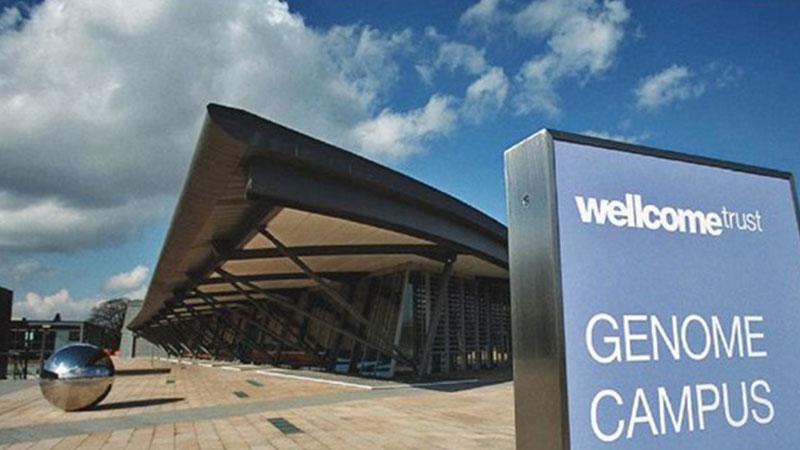Dr Kalpana Surendranath, Reader in Genome Engineering at the University of Westminster, has been appointed as the Co-lead for the Wellcome Connecting Science programme, a new initiative run by the charity Wellcome Trust. Dr Kalpana will work on a range of virtual and lab-based genome engineering courses that will support the exploration of genomic science and its impact on research, health and society.

Wellcome Connecting Science is a major initiative of the Wellcome Trust, one of the world's largest biomedical research charities. Based at the Wellcome Genome Campus in Cambridge, the initiative is dedicated to enabling everyone to explore genomic science and its impact on research, health and society. The new suite of virtual and lab-based genome engineering courses Dr Surendranath will be organising offers participants a comprehensive overview of both theory and practical laboratory skills required for the genetic manipulation of mammalian cells.
Dr Surendranath was appointed as a result of her contributions to research and knowledge exchange within the field of genome engineering. She is the creator and leader of the Genome Engineering Laboratory and the Gene Editors of the Future programme at the University of Westminster and is an expert in CRISPR genome engineering.
CRISPR genome engineering is hailed as one of the most significant innovations of the decade, with a profound impact on biotechnology and biomedical sciences. The technology acts like a refined molecular surgical procedure, making genetic engineering accessible and efficient. It can be used for removing or introducing desired changes in the DNA of all living cells.
The work on CRISPR was awarded the Nobel Prize in Chemistry on October 7 2020. In a world’s first attempt, in November 2023, the UK’s Medicines and Healthcare Products Regulatory Agency (MHRA) approved the gene therapy Casgevy for the treatment of sickle cell disease – an illness that requires regular blood transfusions. It works by editing the genes in a patient's stem cells, which are the cells that can turn into any kind of cell, like blood cells, skin cells, or muscle cells, depending on what the body needs. By fixing the genetic issues in these stem cells, Casgevy can address the root cause of these blood disorders, offering a potential long-term solution for the disease.
As CRISPR and related technologies continue to grow in importance and application, leading to a rising demand for skilled professionals in this field, Dr Surendranath has effectively utilised CRISPR technology at Westminster not only for cancer research but also for creating approachable and engaging opportunities that enhance student career prospects. Projects include the Gene Editors of the Future programme, the largest and longest-running extracurricular CRISPR initiative in Higher Education, which was launched at the University weeks after the Nobel Prize was announced in 2020. The programme has served as an excellent platform for students to create new knowledge, design challenges, showcase their work at scientific events and contribute to public engagement.
Vice-Chancellor and President of the University of Westminster Professor Peter Bonfield said: "I am so pleased that Dr Kalpana Surendranath has been recognised in the way which plays so closely to her superb and distinctive strengths around gene-editing, CRISPR and her unique ability to practically apply and inspiringly engage so many others in this area of science. I look forward to the seeing the significant impacts that will come from this recognition. Congratulations Kalpana!"
Professor Andrew Linn, Deputy Vice-Chancellor for Research and Knowledge Exchange, said: “At the University of Westminster we are very proud of Dr Surendranath’s achievements bringing cutting-edge science into the hands of our students, and this recognition by the Wellcome Trust is further acknowledgment of the importance and impact of her work.”
Dr Kalpana's work directly contributes to the United Nations Sustainable Development Goals (SDG) 3: Good Health and Wellbeing and 4: Quality Education. Since 2019, the University of Westminster has used the SDGs holistically to frame strategic decisions to help students and colleagues fulfil their potential and contribute to a more sustainable, equitable and healthier society.
Find out more about Biological and Biomedical Sciences courses at the University of Westminster.
Learn more about Research-led initiatives at the University of Westminster.


